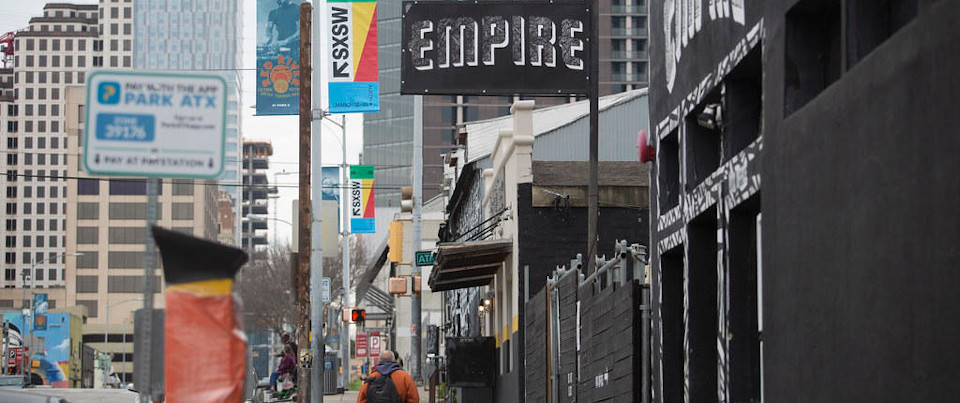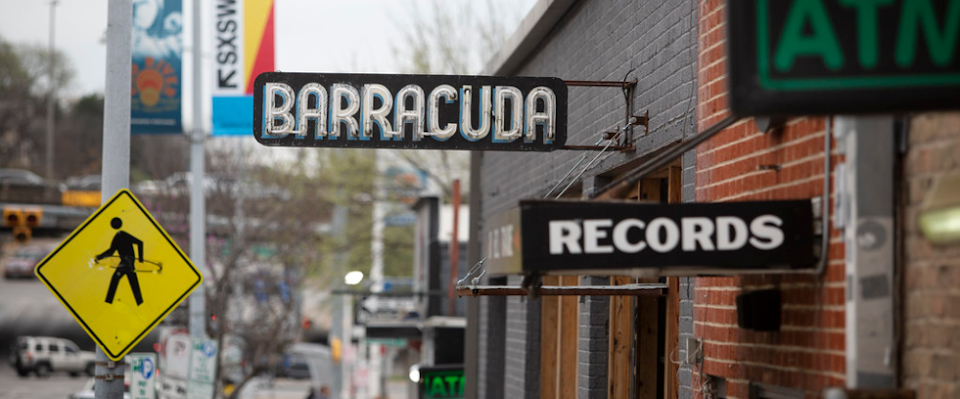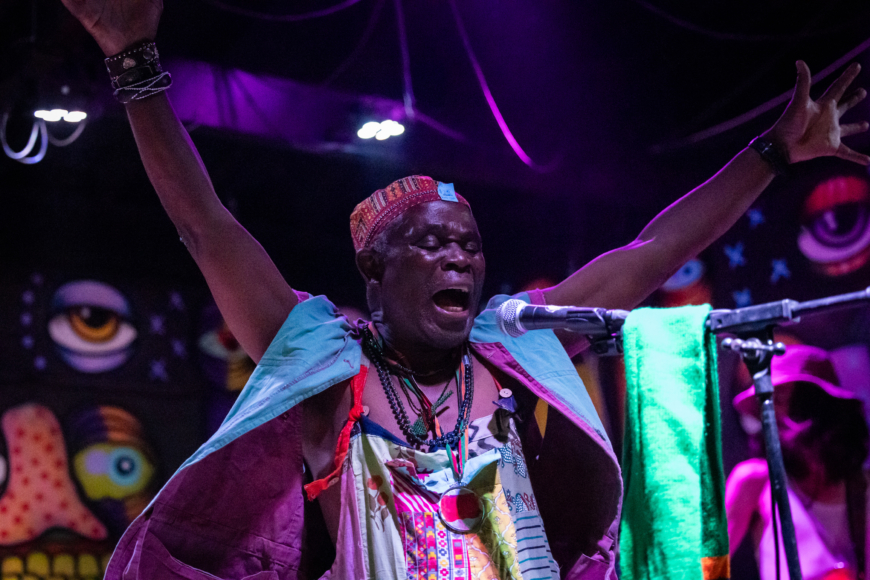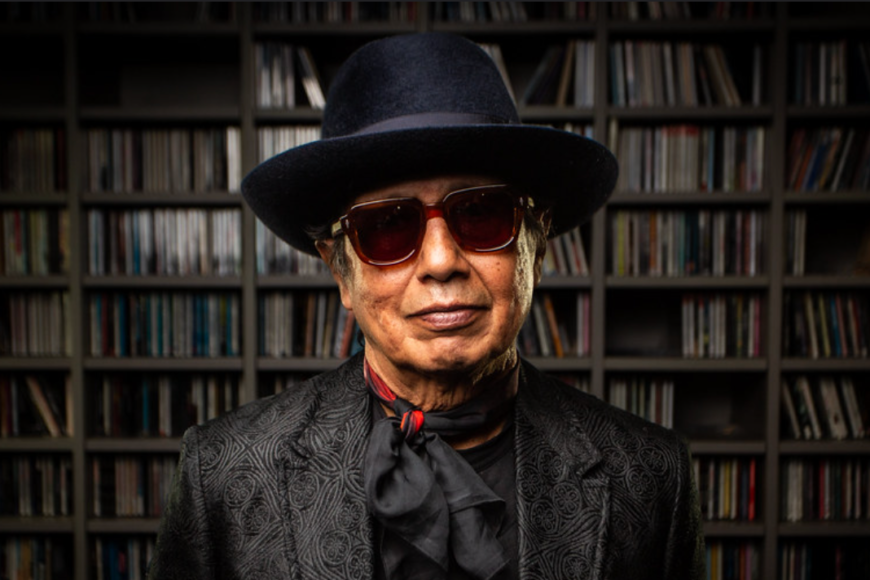photo by Julia Reihs/KUT
What Happens After a Pandemic and Economic Bust Wallop Austin?
By Jeff McCord
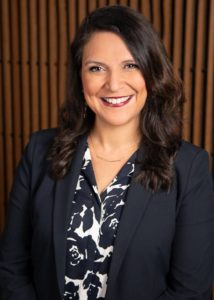
Last Thursday, I spoke with Veronica Briseño, the Director of the City of Austin Economic Development Department. At that time, there were no known cases of the COVID-19 in Austin, and our interview focused on how the city’s residents and business operators would move forward after the cancellation of SXSW, and how the local economy would fare after the loss of an estimated $350 million +. Last Thursday, the city was saying it was still safe to go out in crowds while exercising caution, and was only working to cancel gatherings of more than 2500 people.
Just days later, everything has changed. A national emergency has been declared, and even though testing is still not widely available in the US, the number of cases continues to escalate, including, as of this writing, ten presumptive cases in Austin. Nationwide, as the stock market continues to plunge, social distancing is being encouraged to prevent cases spiking and overwhelming our medical resources. Cancellation is a word seen attached to every sizable event (including every sporting and live televised event and all major tours), and students and employees are being sent home for an indefinite amount of time (including the entire KUTX staff). Businesses, (among them here in Austin, numerous clubs, the Circuit of the Americas, and Waterloo Records) are temporarily closing their doors. Schools have been closed until April 3rd. And the CDC has recommended that any gathering larger than ten people be postponed or cancelled.
Suddenly, it’s not just the entertainment industry, which relies upon high-profile events like SXSW, or the highly vulnerable ‘gig economy’ – musicians, stagehands, tour managers, equipment renters, bartenders, waiters, pedicab drivers – that are affected. The rug is slowly getting pulled out from under almost everyone. Which makes Briseño’s job even tougher.
“Our employees work very closely with the music and entertainment industry, but also with our small business community,” she told me on Thursday. “There was an immediate discussion of how can we help? We’re meeting every day to make sure we’re hitting the needs of the day. We got ourselves trained with the health department to reach out directly one on one with small businesses and talk about preventative measures that can be taken.”
I asked Briseño about Mayor Adler likening the SXSW cancellation to a tornado hitting our city, and if there would be disaster funds available for those most in need. “We’re looking at what funds could be available. I think there could be additional funds if there’s a federal declaration of a disaster. (A national emergency was declared on Friday). But we’re doing our homework right now to see what’s available.”
“We are talking about where we can point folks to in terms of rental assistance. It’s a tough conversation because affordable housing is already an issue for our city and we want to make sure that we are identifying as many tools as possible.”
“We’re going to continue to hear from people on how assistance can be provided. It’s a bit of a wait and see, but we realize that the impact is immediate, too. We’re trying to try to balance that, but we don’t want to develop a resolution too rashly either, knowing that there’s going to be additional impacts as we go through this year.”
Just days later, many of those impacts have already arrived. Both city government and its residents are scrambling at this point to figure out the next steps. In the meantime, Briseño has these suggestions.
“There’s the music and entertainment division and our small business program. We have a loan program through the small business program. And there’s our live music fund, which we’re excited about the first year that we will be administering it. That’s earmarking hotel occupancy tax for for live music opportunities. We’re working to develop those guidelines and there will be more to come on that as well. And then we have partnerships with a lot of our community organizations. And we have partnerships with organizations like People Fund (https://peoplefund.org) and Big Austin (https://www.bigaustin.org) that also provide resources in our community.”
All these are longer-term assistance programs. But these fast-moving times have shifted our thinking. What can do now to help ourselves and others?
KUTX has compiled a list of organizations set up to offer more immediate help: https://kutx.org/features/how-to-support-austin-music-when-you-cant-leave-the-house
And as things move rapidly in this pandemic, the city has website up a site to help everyone find the latest information. http://austintexas.gov/COVID19
Obviously, there is much that needs to be done to help those most in need. In the meantime, we can help by staying home as much as possible, and by ignoring the rampant misinformation out there. We all need to do our best to take care of each other.
Briseño knows this. “We realize this is unprecedented and it will be a bit of time before we fully understand the impact. We want to hear what folks are saying, what their concerns are, so that we can prepare to address them if we can.”
So do we. As events continue to evolve, how are musicians and fans in this rich music community faring? We’d love to hear from you. Reach out to us at kutxaustin@gmail.com.
(Note: Until recently, Jeff McCord was a part-time member of the SXSW programming team.)
